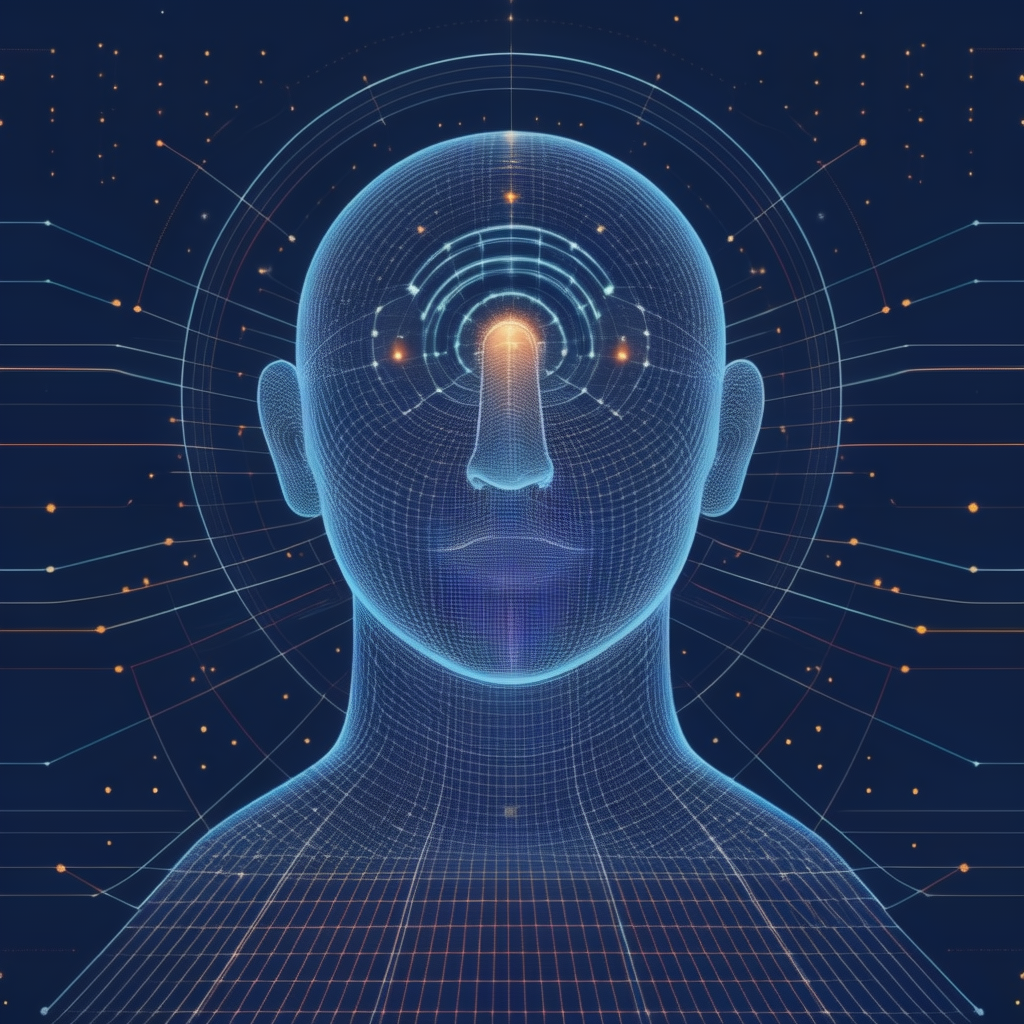Neuropsychiatric disorders are multifaceted conditions influenced by a combination of genetic, environmental, and neurological factors:
In the pursuit of addressing neuropsychiatric disorders such as anxiety, depression, stress disorders, Alzheimer’s disease, schizophrenia, and ADHD, a comprehensive approach is required. While traditional treatments offer relief, they often fall short in providing long-term solutions. However, with the advent of cutting-edge technologies and collaborative efforts across disciplines, the landscape of neuropsychiatric healthcare is undergoing a profound transformation. Let’s delve deeper into the root causes of these disorders, existing solutions, and explore the potential of emerging technologies and collaborative initiatives in revolutionizing neuropsychiatric healthcare.
Understanding the Root Causes:
Neuropsychiatric disorders are intricate conditions influenced by a myriad of factors, encompassing genetic predispositions, environmental exposures, neurobiological alterations, and psychosocial stressors:
- Genetics: Genetic predisposition plays a significant role in many neuropsychiatric disorders, with specific genes and genetic variations linked to increased susceptibility. Genetic susceptibility plays a pivotal role in predisposing individuals to neuropsychiatric disorders, with certain genes and genetic variations linked to heightened vulnerability.
- Environment: Environmental factors such as early-life trauma, chronic stress, social isolation, and exposure to toxins can contribute to the development and exacerbation of neuropsychiatric disorders.
Environmental influences, ranging from early-life adversities to chronic stressors and toxic exposures, contribute significantly to the onset and progression of neuropsychiatric disorders.
- Neurobiology: Alterations in brain structure and function, neurotransmitter imbalances, and dysregulation of neural circuits underlie many neuropsychiatric disorders, affecting mood, cognition, and behavior. Structural and functional changes in the brain, disruptions in neurotransmitter systems, and aberrant neural circuitry underpin the manifestation of neuropsychiatric symptoms, affecting mood, cognition, and behavior.
- Psychosocial Factors: Psychosocial stressors, including socioeconomic disparities, interpersonal conflicts, and cultural influences, can impact mental health and contribute to the onset or progression of neuropsychiatric disorders. Social determinants of mental health, including socioeconomic disparities, interpersonal relationships, cultural norms, and societal pressures, shape the expression and trajectory of neuropsychiatric disorders.
- Neuroinflammation: Emerging research suggests that neuroinflammation, characterized by immune system activation in the brain, may play a significant role in the pathogenesis of neuropsychiatric disorders. Addressing underlying inflammatory processes could offer novel avenues for intervention and treatment.
- Epigenetic Factors: Epigenetic mechanisms, which regulate gene expression without altering DNA sequence, are increasingly recognized as key contributors to neuropsychiatric disorders. Understanding epigenetic modifications could provide insights into individual susceptibility and inform personalized treatment approaches.
- Microbiome-Gut-Brain Axis: The bidirectional communication between the gut microbiome and the brain, known as the microbiome-gut-brain axis, has profound implications for mental health. Modulating the microbiome through dietary interventions or probiotics holds promise for alleviating symptoms of neuropsychiatric disorders.
- Social Determinants: Socioeconomic disparities, cultural influences, and social support networks profoundly impact mental health outcomes. Addressing social determinants of health, such as income inequality and access to education and healthcare, is crucial for promoting mental well-being and reducing the burden of neuropsychiatric disorders.
Current Solutions and Limitations:
Traditional approaches to treating neuropsychiatric disorders typically involve a combination of pharmacotherapy, psychotherapy, and lifestyle interventions Conventional approaches to treating neuropsychiatric disorders encompass a spectrum of interventions, but their efficacy is often constrained by inherent limitations:
- Medication: Antidepressants, anxiolytics, antipsychotics, and other psychotropic medications are commonly prescribed to manage symptoms of neuropsychiatric disorders, but they may have side effects and limited efficacy for some individuals. Pharmacotherapy remains a cornerstone of treatment, yet psychotropic medications may yield variable responses and adverse effects, underscoring the need for personalized and targeted therapies.
- Psychotherapy: Cognitive-behavioral therapy (CBT), mindfulness-based interventions, and other forms of psychotherapy aim to address maladaptive thought patterns and behaviors associated with neuropsychiatric disorders, but access to therapy may be limited, and effectiveness can vary. Psychotherapeutic modalities, including cognitive-behavioral therapy (CBT) and mindfulness-based interventions, offer valuable tools for managing symptoms, but access barriers and treatment adherence challenges persist.
- Lifestyle Modifications: Healthy lifestyle changes, such as regular exercise, balanced nutrition, adequate sleep, and stress management techniques, are recommended to support mental well-being, but implementing and sustaining these changes can be challenging. Encouraging lifestyle modifications, such as exercise, nutrition, sleep hygiene, and stress management, forms an integral part of holistic care, yet implementation and sustained behavior change pose significant obstacles.
- Transcranial Magnetic Stimulation (TMS): TMS is a non-invasive brain stimulation technique that has shown promise in treating depression and other neuropsychiatric disorders by modulating neural activity in targeted brain regions. Continued research and innovation in TMS technology may enhance its therapeutic potential and accessibility.
- Digital Therapeutics: Digital therapeutics, such as smartphone apps and virtual reality platforms, offer scalable and cost-effective interventions for managing symptoms of neuropsychiatric disorders. Integrating digital therapeutics into clinical practice could expand access to evidence-based treatments and improve treatment adherence.
- Psychedelic-Assisted Therapy: Psychedelic substances, such as psilocybin and MDMA, have demonstrated therapeutic potential in treating depression, PTSD, and other neuropsychiatric disorders when used in conjunction with psychotherapy. Exploring the therapeutic mechanisms of psychedelics and developing standardized protocols is a burgeoning area of research.
Emerging Technologies and Innovative Solutions:
The convergence of cutting-edge technologies offers unprecedented opportunities to transform neuropsychiatric healthcare:
- Genetic Engineering and CRISPR-Cas9: Advances in genetic engineering, including CRISPR-Cas9 gene editing, hold promise for identifying and modifying genetic factors underlying neuropsychiatric disorders. Targeted genetic interventions could address specific genetic vulnerabilities and potentially prevent or mitigate the development of these disorders. Precision genetic editing techniques, exemplified by CRISPR-Cas9, offer unprecedented opportunities for targeting and modifying disease-associated genes implicated in neuropsychiatric disorders, paving the way for gene-based therapies and preventive interventions.
- Quantum Computing: Quantum computing has the potential to revolutionize neuropsychiatric research by accelerating the analysis of complex genetic, neurobiological, and environmental data. Quantum algorithms could enable more accurate modeling of brain function, drug interactions, and treatment outcomes, leading to personalized therapeutic approaches. Quantum computing’s computational prowess accelerates the analysis of vast datasets, facilitating the elucidation of intricate genetic, neurobiological, and environmental interactions underlying neuropsychiatric disorders. Quantum algorithms enable sophisticated modeling and simulation, guiding personalized treatment strategies and drug discovery efforts.
- Artificial Intelligence and Machine Learning (AI/ML): AI and ML algorithms can analyze vast datasets to identify patterns, biomarkers, and predictive indicators of neuropsychiatric disorders. AI-driven diagnostics and treatment algorithms could enhance early detection, individualize treatment plans, and optimize therapeutic interventions based on real-time patient data. AI and ML algorithms decipher complex patterns and biomarkers within multi-dimensional data streams, enhancing diagnostic accuracy, treatment selection, and prognostic forecasting in neuropsychiatric disorders. Advanced analytics empower clinicians with decision support tools, optimizing therapeutic outcomes and patient care pathways.
- Blockchain Technology: Blockchain technology offers secure and transparent platforms for managing electronic health records, ensuring patient privacy, and facilitating data sharing among researchers, clinicians, and patients. Blockchain-based solutions could enable decentralized clinical trials, enhance data integrity, and accelerate the discovery of novel therapies for neuropsychiatric disorders. Blockchain platforms uphold data integrity, security, and interoperability in the management of electronic health records (EHRs) and clinical trial data. Decentralized ledger systems foster transparent collaboration among stakeholders, streamlining research consortia, and fostering innovation in neuropsychiatric drug development and clinical trials.
- Brain-Computer Interfaces (BCI): BCI technologies allow direct communication between the brain and external devices, offering potential applications for neuropsychiatric treatment and rehabilitation. Neurofeedback-based BCI systems could help individuals regulate brain activity, alleviate symptoms, and enhance neuroplasticity through targeted brain training exercises. Next-generation BCI technologies enable bidirectional communication between the brain and external devices, revolutionizing neuropsychiatric diagnostics, neurorehabilitation, and cognitive enhancement. Closed-loop neurofeedback systems offer real-time modulation of neural activity, empowering individuals to regulate emotional states and cognitive functions.
- Neurofeedback Therapy: Neurofeedback therapy enables individuals to learn to self-regulate their brain activity through real-time feedback, promoting neuroplasticity and symptom reduction. Advanced neurofeedback systems, incorporating machine learning algorithms and immersive interfaces, could enhance treatment outcomes and personalization.
- Neural Interface Devices: Neural interface devices, such as brain-computer interfaces (BCIs) and neural implants, enable direct communication between the brain and external devices. Exploring the therapeutic applications of neural interfaces for neuropsychiatric disorders, including neural modulation and neuroprosthetics, is a frontier of research.
- Nutraceuticals and Functional Foods: Nutraceuticals and functional foods enriched with bioactive compounds, such as omega-3 fatty acids, polyphenols, and prebiotics, show promise for supporting mental health and cognitive function. Developing targeted formulations and personalized nutrition plans could optimize therapeutic benefits for individuals with neuropsychiatric disorders.
Collaborative Efforts and Future Directions:
In addition to technological innovations, collaborative efforts among researchers, clinicians, pharmaceutical companies, startups, and policymakers are essential for advancing neuropsychiatric healthcare:
- Interdisciplinary Research: Collaborative research initiatives that integrate expertise from genetics, neuroscience, psychology, psychiatry, computer science, and engineering are crucial for understanding the complex mechanisms underlying neuropsychiatric disorders and developing innovative solutions. Collaborative research initiatives unite experts across genetics, neuroscience, psychology, psychiatry, computer science, and engineering domains, fostering synergistic discoveries and breakthrough innovations in neuropsychiatric healthcare.
- Precision Medicine Approaches: Precision medicine approaches that incorporate genetic, neurobiological, and psychosocial factors can enable personalized diagnosis and treatment strategies tailored to individual patient needs and preferences. Precision medicine frameworks integrate diverse data modalities, including genomics, neuroimaging, and digital phenotyping, to tailor individualized treatment algorithms and preventive interventions, aligning therapeutic strategies with patients’ unique biological and psychosocial profiles.
- Ethical Considerations: Ethical considerations surrounding the use of emerging technologies in neuropsychiatric healthcare, including privacy, consent, equity, and accessibility, must be carefully addressed to ensure responsible innovation and equitable access to benefits.Ethical considerations surrounding emerging technologies encompass privacy safeguards, consent frameworks, equity assurances, and responsible innovation practices. Ethical deliberations inform regulatory policies and governance frameworks, ensuring equitable access to transformative interventions and safeguarding patient autonomy and welfare.
- Regulatory Frameworks: Regulatory frameworks that balance innovation with safety and efficacy are necessary to guide the development and implementation of new technologies in neuropsychiatric healthcare. Transparent and evidence-based regulatory processes can foster public trust and confidence in emerging interventions. Regulatory harmonization efforts harmonize global standards for the evaluation and approval of novel neuropsychiatric therapies and digital health technologies. Streamlined regulatory pathways expedite market access and foster innovation ecosystems, catalyzing the translation of research discoveries into clinical practice.
- Community-Based Participatory Research: Engaging diverse stakeholders in the research process, including individuals with lived experience of neuropsychiatric disorders, fosters community empowerment and ensures that research priorities are aligned with patient needs and preferences.
- Open Science Initiatives: Open science principles, such as data sharing, transparency, and reproducibility, promote collaboration and accelerate scientific discovery in neuropsychiatric research. Embracing open science frameworks can enhance research rigor and facilitate knowledge translation.
- Ethical Considerations: Ethical considerations surrounding the use of emerging technologies in neuropsychiatric healthcare, including privacy, consent, equity, and accessibility, must be carefully navigated. Ethical guidelines and regulatory frameworks should prioritize patient safety, autonomy, and dignity.
In conclusion, the convergence of genetic engineering, quantum computing, AI/ML, blockchain, and BCI technologies offers unprecedented opportunities to revolutionize the prevention, diagnosis, and treatment of neuropsychiatric disorders. By addressing the root causes of these disorders and leveraging cutting-edge technologies, we can move towards more personalized, effective, and accessible approaches to neuropsychiatric healthcare, ultimately improving the lives of millions affected by these challenging conditions. Collaboration, innovation, and ethical stewardship will be key drivers in shaping the future of neuropsychiatric healthcare and advancing the frontiers of human well-being.
Collaboration, innovation, and ethical stewardship serve as guiding beacons in navigating this transformative journey, as we endeavor to alleviate the burden of neuropsychiatric disorders and cultivate flourishing mental health for all.







